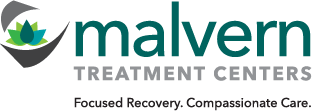By: Malvern Treatment Center’s Chief Clincial Officer Dennis Deal, MHS, LPC, CCDP-D
The holiday season is upon us and it is the time of giving, sharing and caring. A time for us to share well wishes, peace and happiness to all.
It is also a time of great stress and anxiety, with questions like: Did I spend enough on gifts for my wife and children? Will I be able to pay my bills on time if I buy all the gifts I need? The timelines are tight, and we are bombarded daily with how many shopping days are left. There are so many stress factors including traffic on the highways, crowded malls and shopping districts, which can detract from what should be a time to enjoy holiday meals with family. The holidays should focus on the love we share in so many ways that can make it all seem worthwhile.
The same is true for those of us who are in recovery from addictive diseases. The holiday season can be a wonderful time of the year, or it can be a time that brings on emotions that make us unhappy, which can lead to a relapse. Some careful planning to deal with holiday stress and triggers can make the difference.
In early recovery, we can fall into memories of past holidays when we ruined the festivities of others. When we stole from our friends and families, or started arguments or physical fights. The guilt from those events can cause us to overcompensate in an attempt to make up for past mistakes. Spending what we don’t have or worrying about what we don’t have can result in mood swings that we have dealt with through self-medication or to get high. Sobriety is challenged more during the holiday season than any other time. We are the minority, most people can have that cocktail or wine with dinner. It is not uncommon for those of us with primary drug addictions to be offered alcohol by the very people whose holidays we ruined because we “earned it.” Keeping up with our program may include adding a few meetings to help cope. Learn more about our relapse solutions program here. Recovery fellowships celebrating the holidays, like an AA New Year’s Eve Dance or with people in recovery are the safest ways to enjoy the holiday without relapse.
Those of us with some years in recovery are not immune to relapse traps. We do have years of experience doing what works and are best to keep our holiday program plan intact. Through our hard work in recovery we can help newcomers who cannot afford that ticket to the AA dance or a seat at a family holiday meal. Our gifts to newcomers are usually passed down as the gifted gain years in recovery.
I remember getting a $60 holiday bonus from a job that paid me $60 a week like it was yesterday. I took that money and made 12 $5 envelopes and gave the money to younger siblings and my girlfriend’s siblings who I was stealing from the year before. The joy I felt from being decent and trusted made me very happy to be able to give. The years have rolled by and I continue to work at giving rather than receiving by attending recovery holiday events, talking to my sponsor, and helping the newcomer to get another sober day.
The following is a list of 12 Tips for Sober Holidays from The International Journal of Alcoholics Anonymous:
- Line up extra AA activities (help on the phones, speak, empty the ashtrays).
- Be host to friends, especially newcomers, at home or at a coffee shop.
- Keep your AA telephone list with you at all times.
- Find out about holiday meetings or celebrations in your local groups.
- Skip any drinking occasions you’re nervous about.
- If there’s one you can’t skip, take an AA friend–or keep candy handy.
- Don’t think you have to stay late (plan an “important date” in advance).
- Go to church. Any church. And don’t forget about extra meetings.
- Don’t sit around brooding; catch up on reading, museums, walks, letters.
- Don’t project about holiday temptations: remember “One day at a time.”
- Even if you cannot give material gifts, enjoy the beauty of holiday love.
- Carry the message. Give the joy away, and it will be yours to keep.
